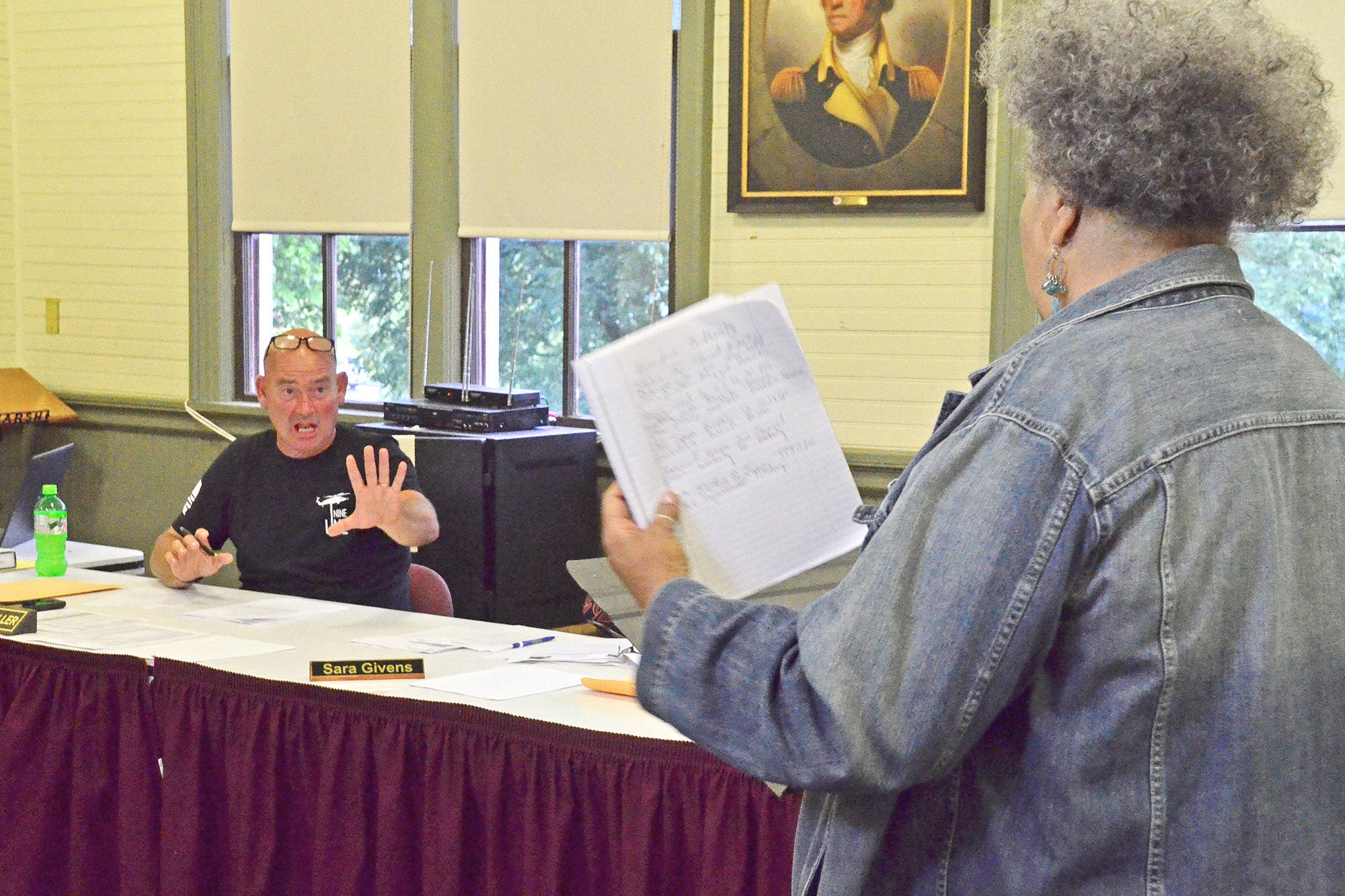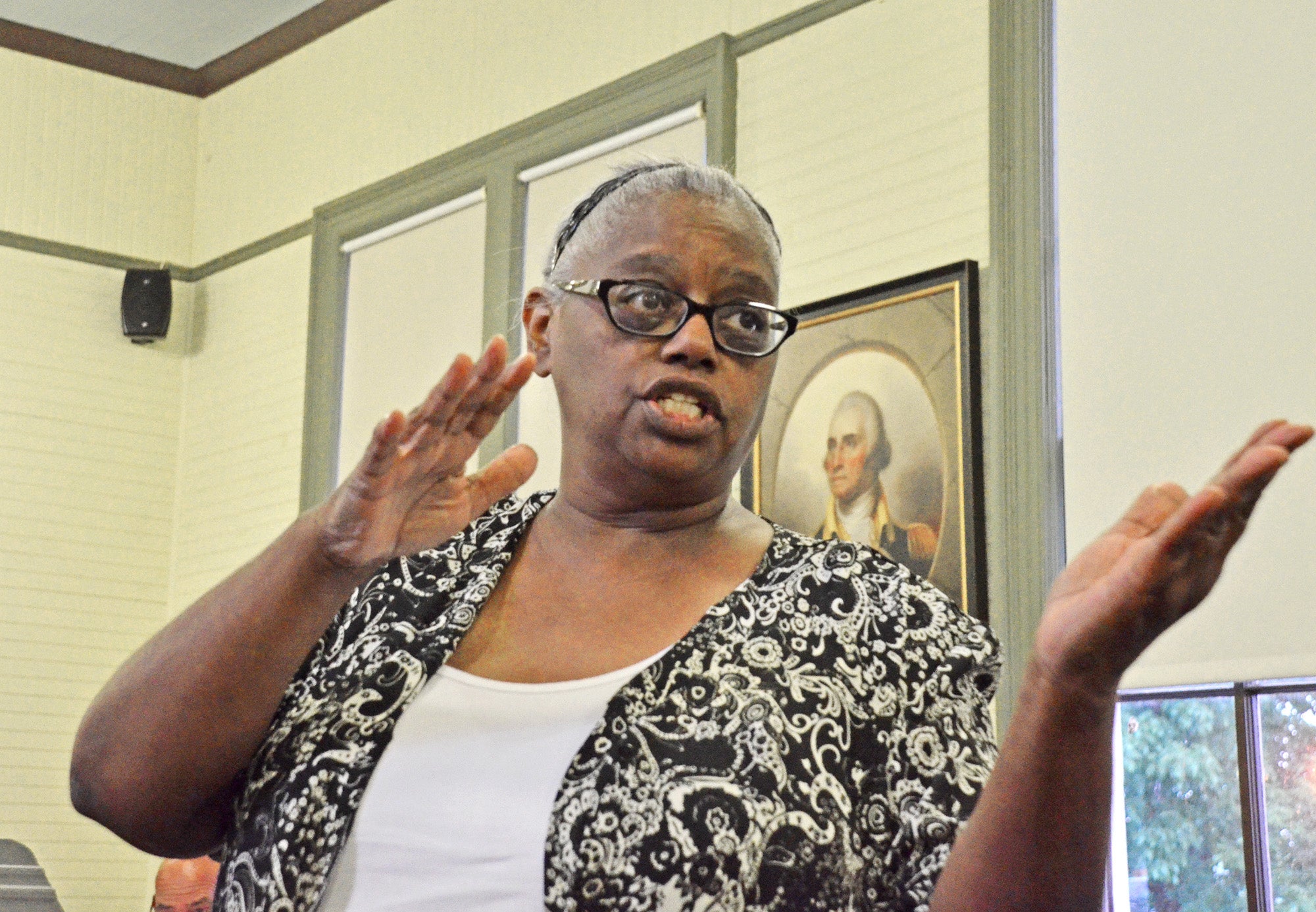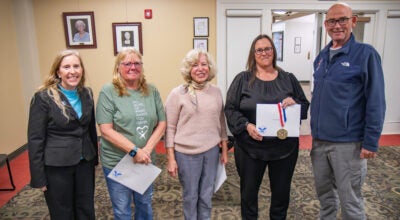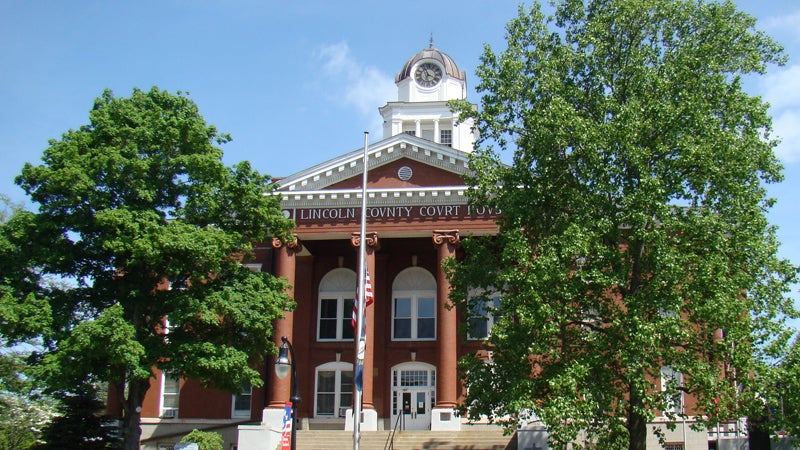Code enforcement complaints a recurring issue for Stanford City Council
Published 10:52 am Thursday, June 20, 2019
|
Getting your Trinity Audio player ready...
|
STANFORD — It’s been almost two months since the demolition of a home on Hustonville Street was started and subsequently halted after crews discovered a log cabin underneath the vinyl siding of the home, yet the controversy over the demolition and code enforcement looms.
Citizens brought their complaints to the Stanford City Council in a special-called meeting concerning the April 13 demolition and discovery soon after it occurred, and later the heirs of Emma Stewart, who had owned the property, questioned the sudden demolition.
In the council’s June meeting, the complaints kept coming.
During citizens’ comments, Luzia Foster, a resident of Whitley Avenue in Stanford, first expressed to the council that whoever wrapped the log cabin to protect it from the elements deserves a big thanks. And then she said, “I want to ask about the house next door to me.”
“The Joe Spears’ property, it’s become a wildlife sanctuary,” Foster continued. “There are raccoons, groundhogs … it has become a cat house. It’s harboring all kinds of animals.”
Foster then elaborated on the actual condition of the house.
“The floors have fallen in and some windows (formerly boarded) are now open,” she said. “It’s open to any type animal to get in. There are strange people walking around. I don’t know where they are coming from … It could turn into a crack house, anything like that. It needs some attention.”
Jeff Knouse, Stanford’s Code Enforcement Officer, told Foster he knows of the property.
“We’re well aware of … it’s in the process,” he said. “It goes through steps, but it’s …”
“Do you not consider this property an imminent danger?” Stanford City Councilwoman Peggy Hester cut in.”
“No,” Knouse responded, to which Hester inquired, ‘Why not?”
“Because it’s not an imminent danger,” he answered.
“I think it is an imminent danger,” Hester came back.
After Knouse responded “I don’t” and Hester retorted “Well, I do,” a voice from the crowd asked “What is imminent danger.”
“An imminent danger is roof collapse. That type of stuff,” Knouse said.
“Floors in this house have fallen through to the foundation,” Hester said of the Spears’ house.
In the special-called meeting that followed the Hustonville Street demolition, which was reported in the April 25 issue of The Interior Journal, Knouse read from the ordinance on what constitutes a structure as an imminent danger, saying “the structure presents a serious threat to the public health, safety and welfare or; that the structure is so old, dilapidated, has become so far out of repair, as to be dangerous, unsafe, unsanitary or otherwise unfit for human habitation or occupancy or; demolition is otherwise reasonably necessary to protect the public interest.”
“So are you saying it’s on a list to be handled sometime,” Foster asked Knouse.
“Yes.” he answered. “It’s just fixing to go through a hearing process before too long.”
City Councilman Dalton Miller asked Foster if she had filed an official complaint with code enforcement and she stated, “No, but I will.”
Before Foster left the speaker’s podium, Hester again voiced her displeasure with the situation.
“If this house is not an imminent danger, then I don’t know how in the world the house on Hustonville Street was declared an imminent danger,” Hester said. “And they got no due process. They didn’t get a hearing. They didn’t get a certified letter. That’s all I’ve got to say about it.”
The next citizen to address the council, Claude Scott Newcomb, spoke along the same issue as Foster but rather than raising concerns about having a house demolished, Newcomb was more interested in the demolition process. He is the owner of Scott’s Dispatch 4UServices Inc.
“For the past few months, I’ve been noticing that you guys have been tearing down a lot of these properties here on Maxwell Street, Martin Luther King and a lot of different places and I went down to your office (city hall) and left my business information because I wanted to find out if you guys had a contract with one individual or one company that’s doing this because my understanding is that there is bids to be submitted from different contractors,” Newcomb said as he addressed Mayor Scottie Ernst.
“As far as demolition of houses, that’s through code enforcement,” Ernst said. “He (Knouse) takes care of that. I don’t make that decision. He goes through the process of how he selects individual or company to do that based on price or demolition or landfill or so forth.”
From the back of the meeting room at the L&N Historic Depot, Knouse stated that “there’s no contract with any individual.”
Newcomb asked Knouse, “If you don’t have any contracts, are you accepting bids from at least three people?”
“We don’t solicit bids. No,” said Knouse. “Because we can do it by arrangement.”
Hester corrected Knouse saying, “No we can’t,” explaining that for anything between $200 and $10,000 is through three different estimates and not up to code enforcement.
Knouse said he had asked a guy from Danville who was tearing down Danville’s houses to do local demolition.
“We’re supposed to do as much local business as we possibly can. Where we have local citizens who can provide services, that’s who we use,” stated Hester.
“We are using local people,” said Ernst.
“He just said he went to Danville. I just heard him say that,” Hester answered.
“He’s local but he has tore down 32 homes for Danville,” said Knouse, who went on to respond to Hester’s claim that demolition was “not up to code enforcement.”
“House Bill 422 rescinded some ordinances when it put it in there,” he said. “It gives a code enforcement officer the right to have it bid out or a contract or a special arrangement, just make an arrangement to have somebody tear the house down.”
Knouse’s response prompted Newcomb to ask the council, “So, basically from the code enforcement officer he decides, he accepts the bids and he decides, right?”
“I don’t have to say anybody’s name, but the same person has been tearing everything down. The same person. Because whether the other person in this room comes forward and tells you, they contacted another contractor and that contractor said that he couldn’t come and do nothing here because the individual that has been tearing down stuff and hauling it off, you had to go through him. That’s what I was told,” Newcomb said. “If that person chooses to come and tell you guys that then that’s what it is, but that’s who’s been doing it. I’ve been seeing the same person that does nothing different than what I do because he doesn’t get up in the equipment and knock the house down and then have it hauled off. It’s subcontract labor. None of those people are receiving a W-2. The people that’s there have been kidnapped because they’ve been getting paid cash for 20 or 30 years and they can’t go nowhere. They can’t draw nothing. They can’t do nothing.”
“Are you saying you’d be willing to give a bid if there’s a house …” asked Miller.
“Sure. Sure I’ll move a crew in. If my bids accepted, I’ll move a crew in just like they are,” Newcomb answered.
After it was suggested that Newcomb go before the Code Enforcement Board to let them know he would like to be considered for handling demolition, Councilman Ronnie Deatherage had questions for Knouse.
“How do your contractors he’s talking about know you are going to be tearing down a house? He doesn’t know that you’re tearing down a house. How does the community know as a whole when you are going to tear down a house so they know when to come in and submit a bid?” he asked.
“We’ve not sent anything out for that,” Knouse said.
“I asked this question last month, Scott, because I wanted to know why we weren’t getting bids on this. It’s taxpayers’ money and we need to be as prudent as we can,” said Deatherage. “I think transparency. That’s the whole thing we ran on, is being transparent. Open things up and it hasn’t.”
Brenda Cofer stepped to the speaker’s podium to elaborate on Newcomb’s earlier statements.
“I want to add to what Scott brought to the forefront,” she said. “We are one of those people, our family, that were told that this one particular gentleman was the one that had to tear down the houses. We tried to find … because we didn’t wait for the city to tear (Martin Luther King Street house) down, we tore it down ourselves, but we didn’t have a choice in the matter. Nobody would take us because of the other gentleman. Nobody wanted to argue with him. Nobody wanted to fight with him. Nobody wanted to cross him. We not only contacted people out of Lincoln County, we contacted people out of Boyle County. Same thing.”
“You’re saying that everybody you contacted did not want to do business with you because of where you were at?” asked Miller.
“Because of who was contracted with the city already to tear down the houses,” answered Cofer. “We ran into this same issue … They refused to do it.”
“I’m willing to.” Newcomb said from the crowd. “I’m not scared. I like the money, too.”
Debra Owsley, another concerned citizen, suggested to the city that it protect itself with contracts.
“As far as the paper trail when someone is selected to tear down a house, where are the instructions on what you want that individual to do and be able to hold him to what the instructions are? If you don’t have instructions telling him, ‘I want you to do this, this, this and this,’ he can do whatever he wants to,” she said. “When he does the bid, everybody does the bid. Nobody gets to see the bid and the bid that comes in the lowest is awarded that bid. What’s on that bid is what he’s going to do. He can’t deviate from that. And that covers Stanford. That just doesn’t cover the friend around the corner. It’s not about a friend. It’s about the bid, where the money is going to go to, where the money’s being spent.”
Before taking her seat, Owsley re-addressed the question of imminent danger.
“When you said imminent danger, does that mean, like you said, the roof is on, if it’s leaning is that a danger? Or if people are going into it and doing certain things in it, is that a danger? And who makes that decision as to what the danger is? Because in Stanford we see all kinds of houses that are leaning and that are a danger,” she said. “I know you can’t get them all. But if it’s falling down into the basement, it’s a danger. You all are not the only ones that love Stanford. Everybody does and whatever money comes in and wherever it’s spent, we want it spent right.”
As the code enforcement debate lingered on, Councilwoman Sara Givens interrupted discussion.
“We can take 10 years discussing this. Nothing is getting done,” Givens said. “The question is, what can be done to resolve these issues? I am getting sick and tired of coming in here and listening to all these people that have some concerns about properties and everything else but we’re not making any headway or resolving anything. This is June. July, we’re going to come right back down here and we’re going to be doing the same thing, saying the same thing about the same old issues. So my question is, when is it going to stop? What can we do about it to resolve these problems?”
“You can’t resolve anything by just talking. Action has to be taking place. Unless we do anything, it’s going to continue the same way right here in Stanford where I’ve lived for 74 years. It’s not going to change if we don’t make a change. What we have to do is start doing what is right. We can’t sugar coat anything. We have to go by the book. That is right. If we don’t do it right, it’s always going to be wrong.”
With that, Miller spoke up and volunteered his time to reviewing ordinances.
“I agree with Sara. I’d heard a lot of talk for years, even before I was on the council,” he said. “Why don’t we set a date right now that at least three of us go down and review ordinances? I’m wiling to go down and give my time. We can review and submit to bring to council meeting. I’m offering one day a month to do nothing but reviewing ordinances we think might be out of date or that might need changes to.”
Several council members and a couple volunteers agreed to meet on Monday, July 15, at city hall to begin reviewing ordinances.







